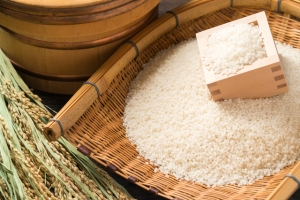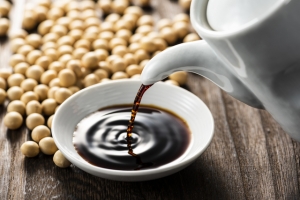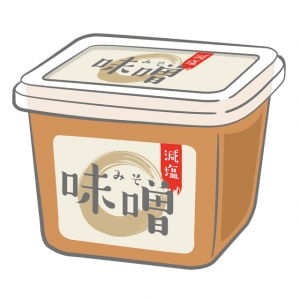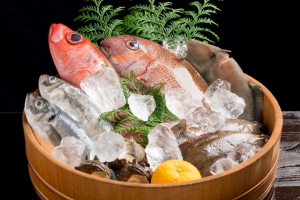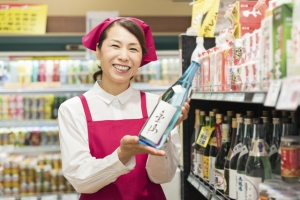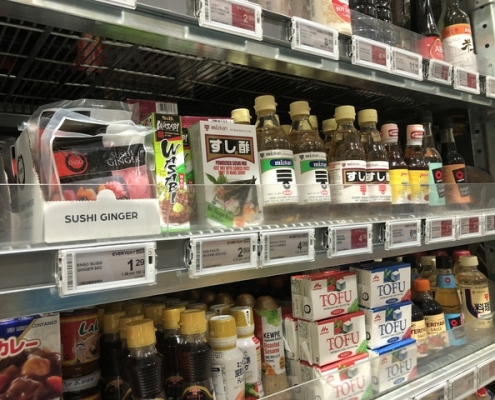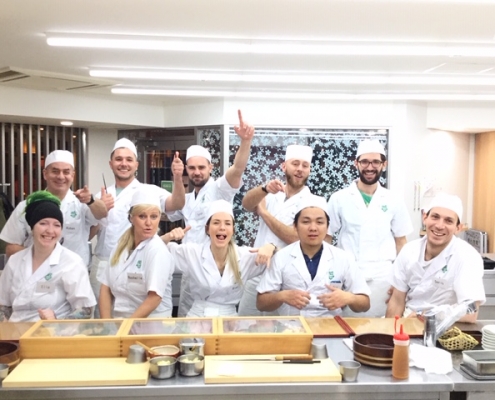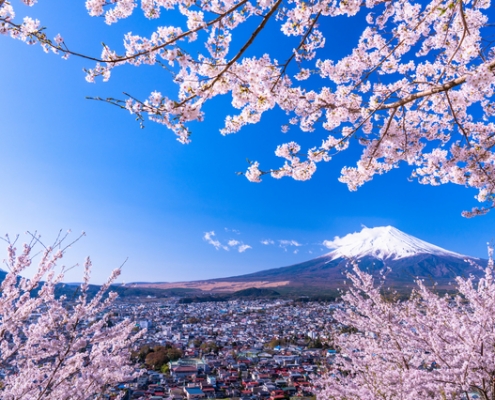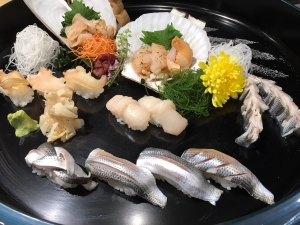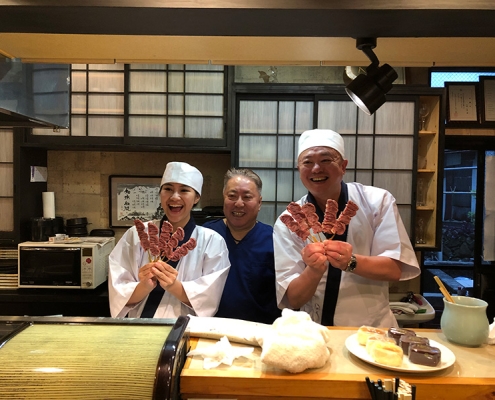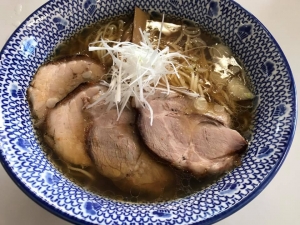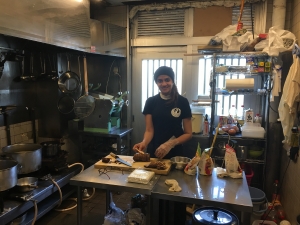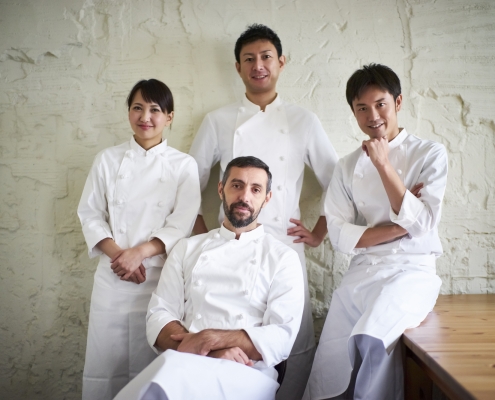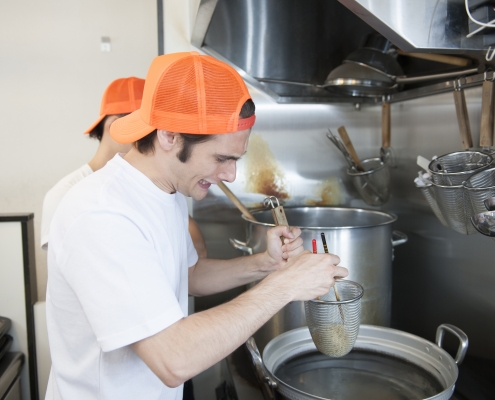Japanese grocery stores and ingredient suppliers in Toronto
June 8 2021 Updated
This page is for food lovers and professional chefs in Toronto that are looking for Japanese cooking supplies.
Rice
You can buy Japanese rice grown in Japan or the United States at Japanese grocery stores, Chinese grocery stores, high-end supermarkets, or through food ingredient suppliers. Amazon also sells Japanese rice.
Soy sauce
Soy sauce for household use can be purchased at Japanese or Chinese grocery stores and high-end supermarkets, whereas food ingredient suppliers sell bulk soy sauce for business use.
Miso
Japanese or Chinese grocery stores and high-end supermarkets sell miso for the use of individual households.
You can purchase bulk miso for business use though food ingredient suppliers.
Seafood
At Japanese grocery stores and through food ingredient suppliers, you can buy seafood, local or imported from around the world, including Japan.
Since Canada has a well-developed system of cold chain and there is little concern with the degradation of food quality, some high-end restaurants import their seafood partly from the Toyosu Market by air transportation.
Alcohol
A wide variety of alcoholic beverages are available through liquor importers: Japanese beer, shochu, sake, and plum wine. Recently, Japanese sake has been made in Canada as well.
List of Japanese grocery stores and ingredient suppliers
Below is a list of Japanese food importers who wholesale to supermarkets and restaurants, as well as supermarkets that sell Japanese food to the general public.
This list consists of vendors frequently used by Japanese in your country. (Some shops carry not only Japanese cooking supplies but also kitchen ware)
800 Sheppard Ave E, North York, ON M2K 1C3
https://www.tarosfish.com/
730 Queen St. W, Toronto
http://toronto-sanko.com/
3160 Steeles Ave. E, Markham
https://jmart-usa.com/
675 Bloor St. W
and some more stores in Toronto
https://patmart.ca/
222 Cherry St.
and some more stores in Toronto
https://www.tntsupermarket.com/
Vancouver, Québec, and Calgary
https://trueworldfoods.ca/canada
Toronto Branch
https://www.jfc.ca/
50 Fulton Way Richmond Hill, Ontario L4B 1J5
http://www.wismettacusa.com/ca/
Toronto Branch and Montreal Branch
https://ozawa.ca/
Japanese Community Website
Websites below provide you with up-to-date information about Japanese cooking supply stores.
https://www.vancouvershinpo.ca/
Number of Local Japanese People
As of 2019, about 70,000 Japanese people live in Canada, according to the Ministry of Foreign Affairs of Japan: 28,000 live in the Vancouver metropolitan area and 13,000 live in the Toronto metropolitan area.
Number of Local Japanese Restaurants
According to the 2016 report issued by the Japanese government, there are 2,635 Japanese restaurants in Canada.
Among them, approximately 850 are located in Vancouver and 1,070 are in Toronto.
For Canadian People Wanting to Study Japanese Cuisine in Japan
Do you want to study Japanese cuisine in Japan one day? Chefs Wonderland, an agency for helping foreign visitors study cooking in Japan, can make all your cooking school dreams come true.
There are two main ways to study Japanese cuisine in Japan.
One way is to enroll in a culinary school.
The other is to find work at a Japanese restaurant in Japan, although this is not very easy to do.
How Many Canadian People are Living in Japan?
As of 2018, there are 10,751 Canadian people living in Japan.
In addition, 330,600 Canadian people visited to Japan in 2018.
Study Japanese Cuisine at a Culinary School
If you want to attend a Culinary Technical College for Japanese people, you need to be able to speak fluent Japanese, but even if you can’t speak Japanese, you can study Japanese cuisine at one of the following schools that offer English courses lasting anywhere from one day to three months.
There are classes for beginners, short-term intensive courses to get a certificate, and private classes for professional chefs.
Tokyo Sushi Academy
The first and the most popular sushi school in the world.
Japan Culinary Institute
Japanese culinary training including sushi, kaiseki, yakitori, wagashi and more.
Miyajima Ramen School
More than 1,000 graduates from over 50 countries.
International Ramen School
Ramen study program combined with OJT
Study Japanese Cuisine While Working
Under the current immigration laws, foreigners have very limited opportunities to work in restaurants in Japan, you would need a working holiday visa, a spouse visas, or a type of special activity visa issued only to a few people. If you want more information on studying Japanese cuisine while working in Japan,
please see the following article.
Working Holiday in Japan
Working holiday visas are issued to Canadian nationals between the ages of 18 and 25 with a maximum of 6,500 people per year. If you can get a Working Holiday Visa, you can enjoy vacationing and working in Japan for up to one year.
If you are thinking about going on a Working Holiday to Japan, please see the following article.
Japan Working Holiday Guide – 15,000 youth get working holiday visa every year



